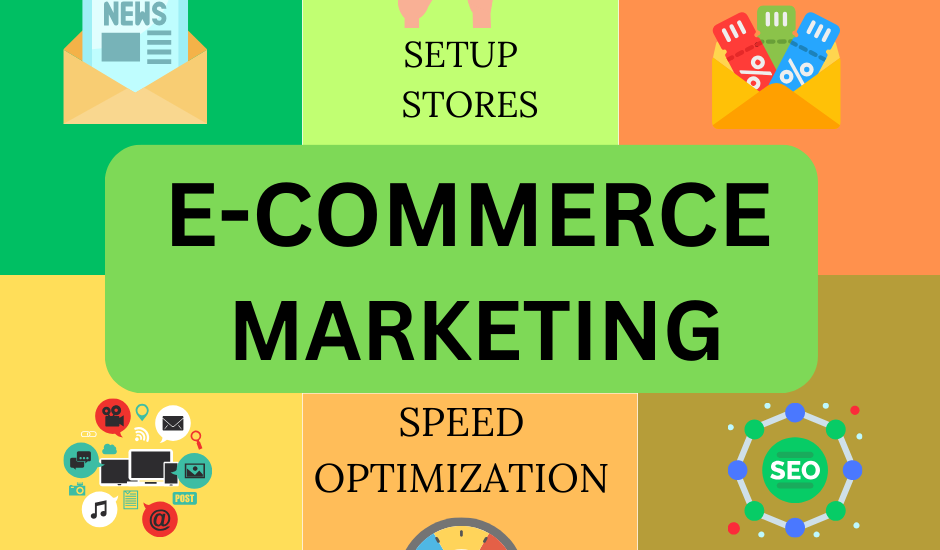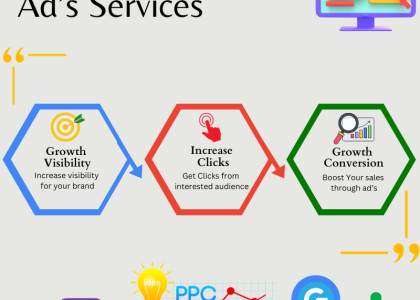In today’s digital age, e-commerce has become a thriving industry with endless opportunities. However, with fierce competition, it’s crucial for e-commerce businesses to stay ahead of the game. To succeed, you need to implement the best marketing practices. In this article, we’ll explore 15 essential strategies to boost your e-commerce marketing efforts and drive success.
Understanding Your Target Audience
To effectively market your products, you must know your audience inside and out. Understand their demographics, preferences, and pain points. This knowledge will guide your marketing efforts and help you create content that resonates with your potential customers.
Building a User-Friendly Website
Your website is your digital storefront. Ensure it’s user-friendly, easy to navigate, and visually appealing. A clutter-free design with intuitive navigation will keep visitors engaged and more likely to make a purchase.
Mobile Optimization
In the mobile-first era, having a mobile-responsive website is non-negotiable. Most online shoppers use their smartphones. Ensure your site looks and functions flawlessly on mobile devices.
High-Quality Product Images and Descriptions
People can’t touch or feel your products online, so high-quality images and detailed descriptions are essential. Provide multiple images from different angles and write compelling product descriptions.
Implementing SEO
Search engine optimization (SEO) is a cornerstone of e-commerce success. Optimize your product pages and content with relevant keywords to improve your search engine rankings.
Content Marketing
Content is king in the digital world. Create valuable, informative, and entertaining content related to your products. Blog posts, how-to guides, and videos can establish your authority in your niche.
Social Media Marketing
Harness the power of social media platforms to connect with your audience. Share engaging content, run targeted ads, and interact with your followers to build a loyal community.
Email Marketing
Email marketing remains one of the most effective ways to reach your audience. Send personalized offers, product recommendations, and newsletters to keep your customers engaged.
Pay-Per-Click Advertising
PPC advertising can drive immediate traffic to your e-commerce site. Create targeted ads that appear when users search for relevant keywords.
Influencer Marketing
Collaborate with influencers in your industry to reach a broader audience. Influencers can authentically promote your products to their followers.
Customer Reviews and Ratings
Positive reviews build trust. Encourage customers to leave reviews and display them prominently on your website.
Abandoned Cart Recovery
Implement strategies to recover abandoned carts. Send reminder emails with incentives to complete the purchase.
Offering Discounts and Promotions
Everyone loves a good deal. Offer occasional discounts, promotions, or bundle deals to entice shoppers.
Customer Loyalty Programs
Reward loyal customers with exclusive offers and discounts. A loyal customer is more likely to make repeat purchases.
Analyzing Data and Adjusting Strategies
Regularly analyze data from your website and marketing campaigns. Use these insights to refine your strategies for better results.
Conclusion
By implementing these e-commerce marketing best practices, you’ll be well on your way to building a successful online business. Remember that e-commerce is dynamic, so stay updated with the latest trends and adapt your strategies accordingly.
- How do I choose the right target audience for my e-commerce business?
- Research your niche thoroughly and conduct audience surveys to understand their preferences.
- What is the significance of mobile optimization in e-commerce?
- Mobile optimization ensures that your website caters to the growing number of mobile users, enhancing their experience.
- How can I encourage customers to leave reviews?
- Offer incentives, make the review process easy, and provide exceptional customer service.
- Is email marketing still effective in the age of social media?
- Yes, email marketing remains effective as it provides a direct and personalized way to connect with your audience.
- What tools can help me analyze e-commerce data effectively?
- Google Analytics, Shopify Analytics, and other e-commerce platforms offer valuable data analysis tools.




